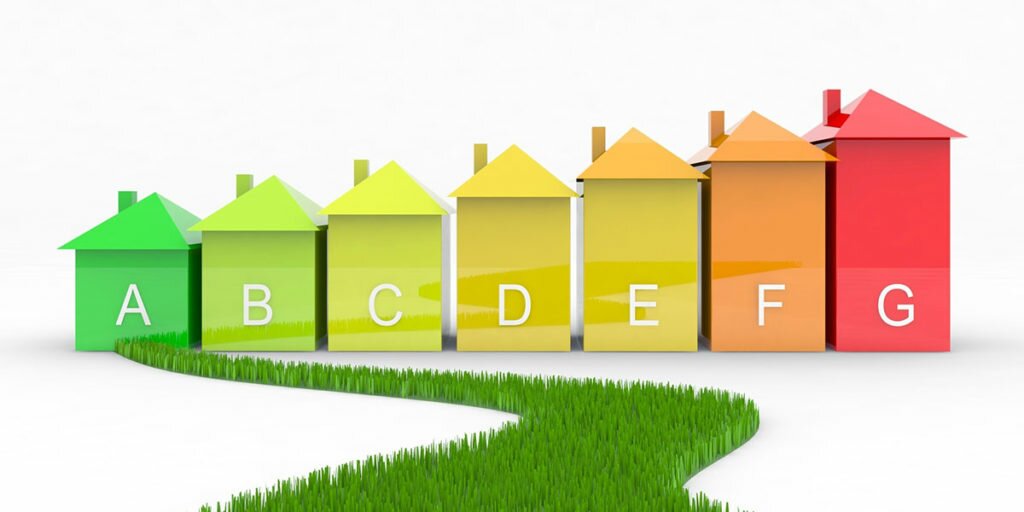Do you have a home or potential purchaser within the United Kingdom? If so, you might have encountered the term Energy Performance Certificate (EPC) in the United Kingdom. Knowing the meaning of is an EPC is and its cost can be crucial to making educated decisions regarding your home. In this post, we’ll clarify the meaning that an EPC is a part of Energy Performance Certificate cost in the UK by shedding light on the importance of it and the impact it has on the transactions of property.
1. Introduction: What is an Energy Performance Certificate (EPC)?
A Energy Performance Certificate (EPC) is a document which provides information on the efficiency of energy use in an property. It evaluates the energy efficiency of a structure in a range of A to G which is A as the most efficient, and G being the most inefficient. The EPC offers suggestions for enhancing efficiency in energy use and to reduce carbon emissions.
2. The Purpose and Benefits of an EPC
The main function of the EPC will be to present prospective buyers or tenants with details about the energy efficiency the property. It assists them in understanding the operating cost of the home and makes more informed choices. In addition the EPC promotes energy efficient measures and helps in an effort to reduce carbon emission. This contributes to sustainability for the environment.
3. EPC Ratings and Assessments
EPC rating are calculated upon a variety of variables such as insulation heating systems, heating systems as well as renewable energy sources along with the general energy efficiency of the home. An experienced domestic energy assessor evaluates these elements and assigns an most appropriate rating for the property. The higher the score higher, the more efficient the property is thought to be.
4. How EPC Costs Are Determined
The cost for obtaining the Energy Performance Certificate varies depending on various aspects. It could be based on how big the house as well as the location, the size, and complex structure of the building and the EPC supplier. It is recommended to get quotes from various EPC providers to compare costs and the services they provide.
5. Factors Affecting EPC Costs
Many factors influence the price of the cost of an EPC. For instance, larger homes might require more time and effort to assess which can result in more expensive costs. The place of the property may be a factor since assessors might have to travel further distances. In addition the complex structure of the building including many floors or distinctive architectural elements, could delay the assessment process and therefore impact the total cost.
6. Typical EPC Costs in the UK
The cost for obtaining the Energy Performance Certificate in the UK is between PS60 to PS120 dependent on the variables that were mentioned earlier. It is essential to look at both the cost and what quality service when choosing the EPC service provider, cost of an energy performance certificate greece.
7. Getting an EPC: The Process Explained
To get an EPC To obtain an EPC, you must seek out a qualified energy assessor, who will visit your property to determine its energy efficiency. The evaluation typically lasts between 45 to 60 minutes and the assessor collects relevant information and measurements. The assessor will then prepare the EPC and offer suggestions for improving efficiency in energy use.
8. Importance of EPCs for Property Transactions
EPCs, also known as Energy Performance Certificates (EPCs), are a vital part of the property market within the UK. In providing prospective buyers and tenants with details regarding the efficiency of their energy use, EPCs empower them to make educated decisions. Properties that have more energy-efficient ratings could draw more attention and possibly attract more expensive costs.
9. How EPCs Contribute to Energy Efficiency
EPCs play an essential role in encouraging efficiency in energy and decreasing carbon emissions. By identifying areas of improvements, like better quality insulation and more effective heating system, homeowners can implement measures to enhance energy efficiency. This results in lower consumption of energy and reduced greenhouse gas emissions, which contributes to the creation of a more sustainable and sustainable future.
10. EPCs and the Green Deal
The Green Deal is a government initiative designed to assist homeowners and landlords increase their energy efficiency in their homes. EPCs are a crucial element of the Green Deal, as they provide useful information for assessing the energy savings potential of improvements. Green Deal Green Deal also offers financial aid and incentives to implement energy-efficient strategies.
11. EPCs for Landlords and Rental Properties
Tenants in the UK are legally obliged to offer an authentic Energy Performance Certificate to prospective tenants. The EPC is required to be supplied for free and available for viewings of the property. It assists tenants to understand the efficiency of energy use in the property prior to making a decision about renting.
12. EPC Validity and Renewals
Energy Performance Certificates are valid for a period of ten years after the date they were issued. But, owners can decide renewal of their EPC sooner if they have implemented significant changes to improve their home’s energy efficiency. Renewal of an EPC permits property owners to show the improved energy efficiency of their property.
13. The Role of Accredited EPC Assessors
Accredited EPC assessors play a crucial part in assessing the energy efficiency of buildings. They are trained and credentials to conduct comprehensive evaluations and provide precise evaluations. In order to obtain an EPC It is essential to work with an accredited assessor to guarantee the validity and credibility of the evaluation.
14. Comparing EPC Providers and Obtaining Quotes
When looking for an EPC It is recommended to evaluate different companies to determine the best solution for your requirements. Request quotes from a variety of EPC providers, and look at the factors like price and reviews from customers, reputation, and the quality of service they provide. This will allow you to make an informed choice and provide a seamless and secure experience.
15. Frequently Asked Questions (FAQs)
Q1. What is the time it takes to receive an EPC typically?
The EPC assessment can take anywhere from 45 minutes to one hour. The assessor then produces the EPC and it is generally accessible within a couple of days.
Q2. How can I increase my property’s EPC rating?
Yes, there are many steps you can adopt to improve your home’s EPC rating, for instance installing insulation or upgrading heating systems and utilizing renewable energy sources.
Q3. Do you consider an EPC obligatory for all homes Do you think so?
Energy Performance Certificate is required for nearly all homes in the UK when they are constructed or sold, as well as rental.
Q4. Can I rent or sell my home without an EPC?
It is not possible, and it is not legal to rent or sell any property within the UK without an energy Performance Certificate.
Q5. Do I have confidence in the online EPC providers?
Although there are trustworthy internet-based EPC providers, it’s vital to conduct your own study and make sure they are certified and trustworthy before utilizing their services.
Conclusion
Understanding the costs of Energy Performance Certificates (EPCs) is vital for homeowners and potential buyer in UK. EPCs provide important information regarding the energy efficiency of a home and aid in promoting sustainable practices. In delving into the meaning of EPC costs and describing its importance and significance, we hope that this post will help you make educated choices about getting an EPC for your home. Read more: gas and electrical certificates



